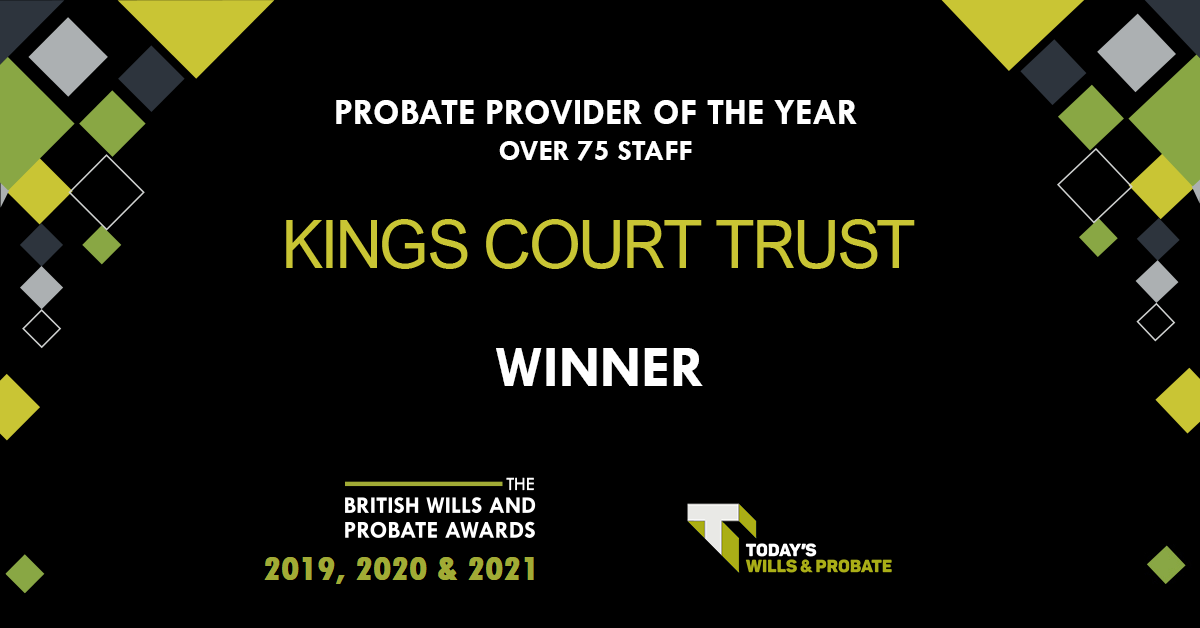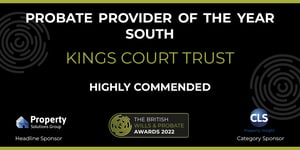William Feeny, Chartered Accountant, discusses the various practices that have evolved for pricing estate administration services.
Most advisers working in the financial services market will understand the concepts of “credence goods” and “asymmetry of information”. But there are many consumers who purchase these services everyday and do not recognise the words or the dangers.
Credence goods describes the intangible nature of professional services and the difficulty of establishing quality before you purchase. You do not know how good the service is at the time you make the purchasing decision. Moreover from a technical perspective, consumers may struggle to assess the quality of the service they have bought and this creates information asymmetry - the difference between the level of technical and factual knowledge and understanding that exists between the service provider on the one hand and the consumer on the other.
There are many every day examples of credence goods including vitamin supplements, education, car and home repairs and of course legal and financial services. Most consumers will have little understanding of the cost of replacing a boiler or how much time it will take to file an Inheritance Tax Return and obtain a Grant. This is why pricing for estate administration is such a thorny issue, and why there have been so many recent news articles in the press over the last few months. The questions are usually the same – How much should probate cost? How do I know if I am getting a good service? How long should it take? Why does the price bear no relationship to the work involved?
Problems in pricing
The problem is not new. Charles Dickens’ case of Jarndyce v Jarndyce in Bleak House which tells a story of a disputed Will and the costs of the lawyers resolving the administration of the estate, effectively sums up the issue. The poor litigants endured years of delay fighting their claim to the Jarndyce estate through the Court of Chancery. The judge, eventually some years later, ruled that although judgment was in their favour, there were simply no funds, after payment of all the probate fees, remaining to distribute to them, and the case collapsed.
And this is really the issue – even for non-contentious matters – historically when the administration of an estate commences, the intricacies of the probate process have been so shrouded in mystery that no one can really explain how long it will take and what it will cost. Various practices have evolved for pricing probate and these have become accepted practice, the most common being simply applying a percentage to the value of the estate to arrive at a fee. Sometimes the percentage quote is also disguised as being a fixed fee quotation. However it is becoming more and more apparent that this approach is simply not good enough. In a country where over 70% of households own their own property but may have very simple estates with only a bank account to pay the mortgage, charging a percentage is clearly unfair and often creates a fee which is disproportionate to the work involved.
The other approach used to price estate administration is the more traditional concept of the ticking meter – charge an hourly rate for all the work as and when it is done. This is another methodology that is inherently unfair for the consumer who will have difficulty knowing what the final probate fees will be. It can also create a fundamental conflict between the service provider and the consumer – there is no incentive to get the job done and indeed the longer it takes the larger the fee for the provider.
The situation has been further exacerbated as the practice is now common to offer a combination of the two pricing models, of either a lower hourly rate coupled with a percentage of the gross assets or vice versa. This choice is more akin to a gambling stake.
Finally in the last 12 months there has been a new formula thrown into the ring whereby for a price, the consumer can engage the services of a broker to negotiate the fee. The tender process involves a short telephone conversation with the consumer after which the details of the cases are submitted to a panel of solicitors. The consumer will be offered the lowest quotation and is promised an outstanding service at an excellent price. Being a splendid example of “credence goods” we will have to wait and see if the cheapest solution is always in the best interest of the customer!
Developments in estate administration
The legal market is changing dramatically, and the Legal Services Act is bringing new entrants, innovative processes, specialist structures and a strong customer focus to the market. In the current economic climate, traditional legal practices are contracting, especially where they are reliant on property transactions. The financial state of high street practitioners has, to say the least, become precarious and there is more competition to provide services. For the consumer this is good news as competition has led to a downward price pressure on fees but the problem still remains as to how to price fairly the work on an estate so that the consumers knows exactly what the cost of probate will be.
Kings Court Trust Ltd, an independent probate and estate administration specialist thinks that it has found an innovative and simple solution to this problem. The only way to establish how much work is involved in an estate in advance of actually doing the work is to sit down with the family or representatives of the deceased, spend a committed time, usually around two hours, analysing the estate and then give the client a fixed fee quotation in writing. If the consumer wishes to go ahead to appoint Kings Court they can still cancel at no cost within seven days following the meeting.
No two estates are ever exactly the same and it is impossible to answer the question “How much will it cost?” The Kings Court fee calculation uses about 20 different criteria to arrive at an objective fixed fee price and is immediately followed up by a reality check to ensure that the price makes sense.
Inevitably there will also be exceptions, for example if a case turns out to be contentious or new assets are discovered which materially affect the amount of work to be completed we will reserve the right to reopen the fixed fee quotation. But these are the exception not the rule. We do make mistakes but all our fixed prices are rechecked internally for quality purposes before we start on a case, and we will always adjust a price downwards if the review demonstrates less actual work to do than originally thought. Over the last 10 years and the thousands of cases that we have handled we have built up considerable experience and generally in 99% of cases we are confident that we have got it right.
Conclusion
How can probate practitioners adapt in this new environment? They need to recognise that client’s needs have changed. Clients do not want to wait a long time for the Grant application to be obtained; they want to have access to whoever is handling their case and they want quick distributions and monthly updates. Most of all they want to know how much it is going to cost. Hourly charge out rates are not client friendly and do not promote efficient working practices. Businesses not individuals talk in percentages. Overall, today’s consumer looking for an estate administration provider wants transparency and certainty in the probate charging structures.
Six rules for the consumer appointing an estate administrator
- Do they provide you with an all inclusive no obligation fixed fee?
- Will the provider visit you in your home?
- Do they employ professionally qualified staff and have Professional Indemnity cover?
- Will there be one person handling my case?
- Do their systems allow access to their case management system?
- Are they experts in probate?
What makes Kings Court Trust different?
A multi disciplinary service. At Kings Court Trust the lawyers, tax specialists and accountants all sit within feet of the Case Managers who are the constant point of contact for the client throughout the process.
A fixed fee. The fact that the fee structure is not based on hourly rates but is agreed in advance creates a much healthier relationship between the case handler and the client who knows that there is no ticking meter or additional probate fees to be paid.
Integrated IT and Case Management Systems. The client can be assured that modern IT systems are in place to manage the process and that they can access 24/7 our web based “Insight” system to follow the progress of the case and see estate accounts and documents.





%20A4%20PNG.png?width=89&height=118&name=AGFD%20Logo%20%2B%20(R)%20A4%20PNG.png)

